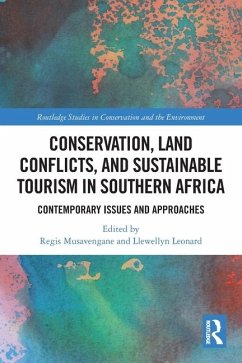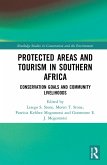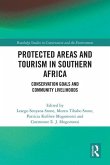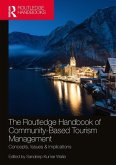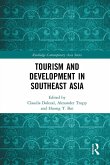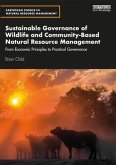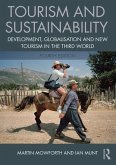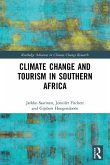This book examines the nexus between conservation, land conflicts, and sustainable tourism approaches in Southern Africa, with a focus on equity, access, restitution, and redistribution.
While Southern Africa is home to important biodiversity, pristine woodlands, and grasslands, and is a habitat for important wildlife species, it is also a land of contestations over its natural resources with a complex historical legacy and a wide variety of competing and conflicting issues surrounding race, cultural and traditional practices, and neoliberalism. Drawing on insights from conservation, environmental, and tourism experts, this volume presents the nexus between land conflicts and conservation in the region. The chapters reveal the hegemony of humans on land and associated resources including wildlife and minerals. By using social science approaches, the book unites environmental, scientific, social, and political issues, as it is imperative we understand the holistic nature of land conflicts in nature-based tourism. Discussing the management theories and approaches to community-based tourism in communities where there are or were land conflicts is critical to understanding the current state and future of tourism in African rural spaces. This volume determines the extent to which land reform impacts community-based tourism in Africa to develop resilient destination strategies and shares solutions to existing land conflicts to promote conservation and nature-based tourism.
The book will be of great interest to students, academics, development experts, and policymakers in the field of conservation, tourism geography, sociology, development studies, land use, and environmental management and African studies.
While Southern Africa is home to important biodiversity, pristine woodlands, and grasslands, and is a habitat for important wildlife species, it is also a land of contestations over its natural resources with a complex historical legacy and a wide variety of competing and conflicting issues surrounding race, cultural and traditional practices, and neoliberalism. Drawing on insights from conservation, environmental, and tourism experts, this volume presents the nexus between land conflicts and conservation in the region. The chapters reveal the hegemony of humans on land and associated resources including wildlife and minerals. By using social science approaches, the book unites environmental, scientific, social, and political issues, as it is imperative we understand the holistic nature of land conflicts in nature-based tourism. Discussing the management theories and approaches to community-based tourism in communities where there are or were land conflicts is critical to understanding the current state and future of tourism in African rural spaces. This volume determines the extent to which land reform impacts community-based tourism in Africa to develop resilient destination strategies and shares solutions to existing land conflicts to promote conservation and nature-based tourism.
The book will be of great interest to students, academics, development experts, and policymakers in the field of conservation, tourism geography, sociology, development studies, land use, and environmental management and African studies.
"This book tackles the ongoing contestation of natural resource ownership and the management of nature and community-based tourism in Southern Africa. These issues are consequential and highly complex. The volume explores four interrelated themes: (i) Land governance and sustainable tourism management, (ii) Managing natural disasters and land reform tourism crises, and (iii) Managing natural disasters and land reform tourism crises. This book will be an important resource for practitioners, faculty and tertiary scholars in related fields, at all levels."
Dr Mucha Mkono, PhD, Lecturer, Business School, The University of Queensland.
"Conservation, Land Conflicts, and Sustainable Tourism in Southern Africa presents a bold collection of papers that address challenging issues of equity, access, restitution, and redistribution in tourism. Tackling these politically sensitive and emotive issues, the book is a long overdue addition to the literature, and should be essential reading for practitioners and tourism ventures."
Anna Spenceley, Senior Research Fellow, University of Johannesburg
Dr Mucha Mkono, PhD, Lecturer, Business School, The University of Queensland.
"Conservation, Land Conflicts, and Sustainable Tourism in Southern Africa presents a bold collection of papers that address challenging issues of equity, access, restitution, and redistribution in tourism. Tackling these politically sensitive and emotive issues, the book is a long overdue addition to the literature, and should be essential reading for practitioners and tourism ventures."
Anna Spenceley, Senior Research Fellow, University of Johannesburg

